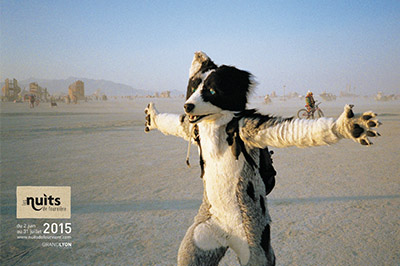 Les Nuits de Fourvière
Les Nuits de Fourvière The art of an eclectic scene
When dance goes together with circus, when Molière talks with Iggy Pop: this is the programme of the Nuits de Fourvière. The festival in Lyon, the sole of its kind, celebrates performing arts in their diversity and eclectism.
The oldest of performing arts festivals
Les Nuits de Fourvière is an odd festival in many aspects. Let's start with its creation. The event was born by chance, after a commemoration. In June 1946, the city of Lyon opens a recently renovated antique theatre on the Fourvière hill. An antique theatre company from La Sorbonne is invited to celebrate the event. The company would play for a week without the word "festival" ever pronounced once.
A year later, the Week of Art in Avignon is created. This gives the inhabitants of Lyon the idea to try the operation again in Fourvière. The festival is officially born under the name "Festival de Lyon" and becomes "Les Nuits de Fourvière" in 1994. At the time, it was exclusively open for theatre, dance and classical music performances. The winds of change in 1968 touched the programming: this year, it opened to modern music.
Now, about 130,000 festivalgoers come at dusk to the beautiful Gallo-Roman theatre in June and July.
An exceptional site from the past
Major cultural centre in the Middle Age, the Antique theatre of Lugdunum slowly fell into oblivion during the centuries. Vines are grown on the stands. In 1933, during expansion work on the Fourvière hill in Lyon, the remains of the Gallo-Roman building resurface. Excavations reveal an odeon from the year 15 B.C. Archaeologists think the site was abandoned during the 15th century because of the cultural decline that followed the fall of the Roman Empire. Today, the site makes part of the historical heritage of France.
From Antique scene to modern show
The Nuits de Fourvière are perfect to review classic plays. Among the most produced plays are "Andromaque" by Racine and "A midsummer night's dream" by Shakespeare. This year, this last play will be directed by Hollywood actor Tim Robbins in a Californian version.
The festival also gives a significant role to modern theatre: ChristianSchiaretti will The Lesson by Eugène Ionesco. Joël Pommerat will reveal his new play "Ça ira (1), Fin de Louis", a show based on the French Revolution. As to music, pop rock has a central role to play in the programming: most famous artists are Iggy Pop, Ben Harper, Björk and Christine and the Queens.
This is one of the keys to the Nuits de Fourvière's success: stars plays alongside less mainstream artistic productions. As such, the festival will end on the 31st of July with a classic play of Hungarian theatre. Liliom by Ferenc Molnar. It is a mysterious tale widely unknown in France and which illustrate by itself the exploration spirit that drives the festival.
